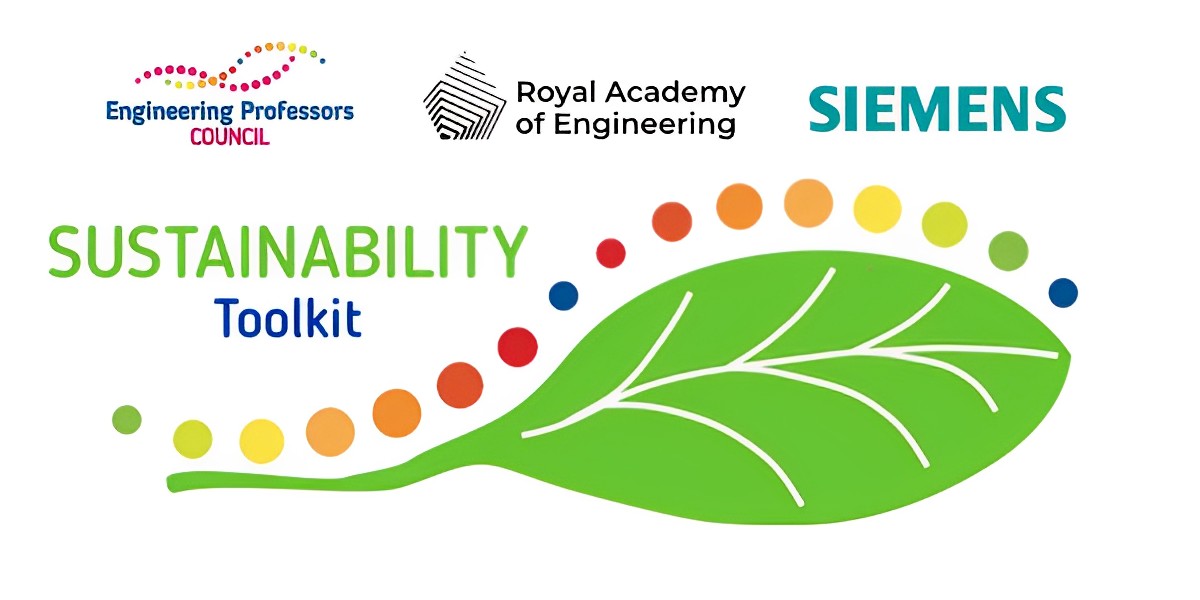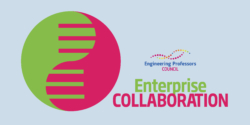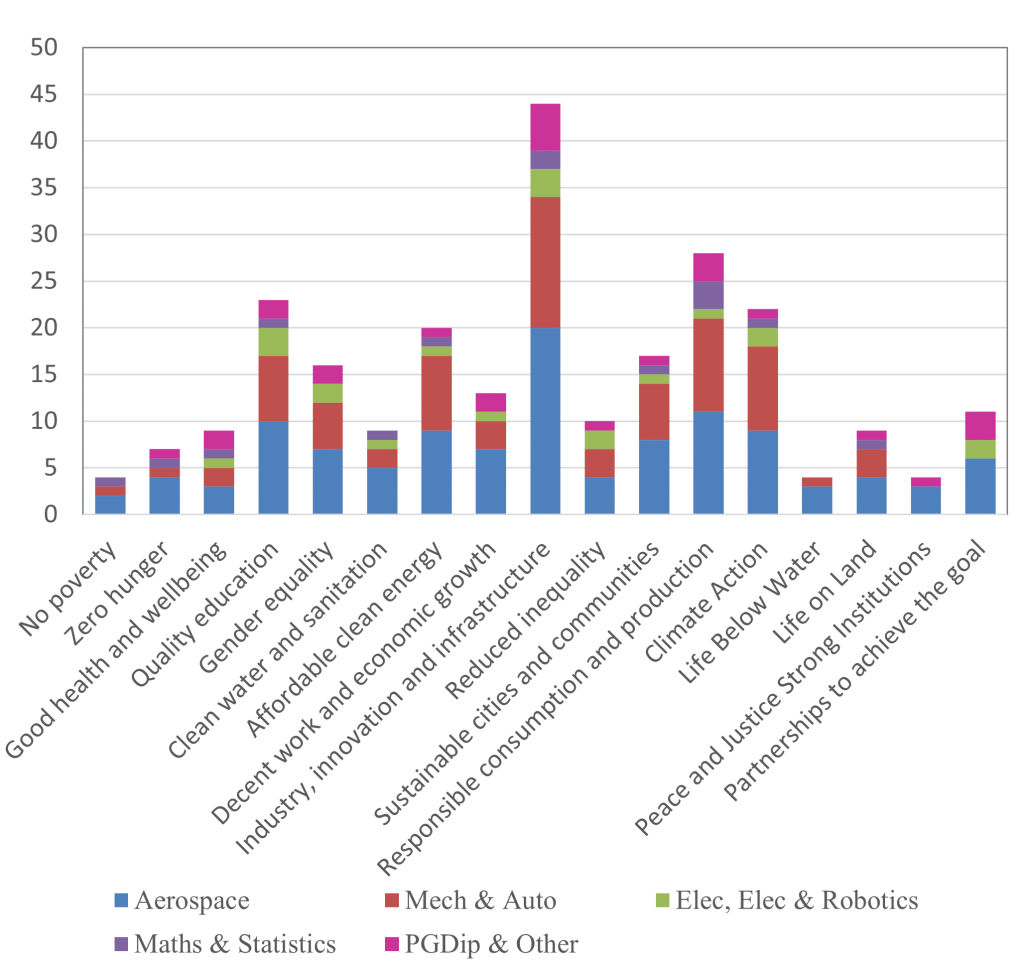Author: Dr Manoj Ravi FHEA (University of Leeds).
Topic: Pedagogical approaches to integrating sustainability.
Tool type: Knowledge.
Relevant disciplines: Any.
Keywords: Education for Sustainable Development; Teaching or embedding sustainability; Course design; AHEP; Learning outcomes; Active learning; Assessment methods; Pedagogy; Climate change; Bloom’s Taxonomy; Project-based learning; Environment; Interdisciplinary; Higher education; Curriculum.
AHEP mapping: This resource addresses two of the themes from the UK’s Accreditation of Higher Education Programmes fourth edition (AHEP4): The Engineer and Society (acknowledging that engineering activity can have a significant societal impact) and Engineering Practice (the practical application of engineering concepts, tools and professional skills). To map this resource to AHEP outcomes specific to a programme under these themes, access AHEP 4 here and navigate to pages 30-31 and 35-37.
Related SDGs: SDG 4 (Quality education); SDG 13 (Climate action).
Who is this article for? This article should be read by educators at all levels in higher education who are seeking an overall perspective on teaching approaches for integrating sustainability in engineering education. Engaging with this topic will also help to prepare students with the soft skill sets that employers are looking for.
Premise:
As stated in the 1987 United Nations Brundtland Report, ‘sustainability’ refers to “meeting the needs of the present without compromising the ability of future generations to meet their own needs” (GH, 1987 p.242). It is underpinned by a tripartite definition encompassing environmental, social and economic sustainability. The necessity for embracing sustainability is underscored by several pressing challenges we face as a global society, ranging from climate change to economic crises.
Against the backdrop of these global challenges, the role of the engineering profession assumes significant importance. While the scientific principles that underpin the various engineering disciplines remain largely the same, the responsibility of the engineering profession is to leverage these principles to address current and future challenges. Consequently, education for sustainable development (ESD) becomes a vital aspect of an engineer’s training, since the profession will guide the design and implementation of innovative solutions to challenges crosscutting environmental impact, judicious use of resources and social wellbeing.
Integrated course design:
Integrating ESD in engineering education requires programme and module designers to take a deliberate approach. Drawing on initial attempts to integrate sustainability in management and business education (Rusinko, 2010), four pedagogical approaches of ESD can be identified:
- piggybacking,
- mainstreaming,
- specialising,
- connecting.
The last two approaches are for creating new curriculum structures with a narrow discipline-specific focus and a broad transdisciplinary focus, respectively. The other two, piggybacking and mainstreaming, are approaches to embed sustainability within existing curriculum structures. Although piggybacking is the easier-to-implement approach, achieved by additional sessions or resources on sustainability being tagged onto existing course modules, mainstreaming enables a broader cross-curricular perspective that intricately intertwines sustainability with engineering principles.
The mainstreaming approach is also an elegant fit with the accreditation requirements for sustainability; the latest edition of the Accreditation of Higher Education Programmes (AHEP) emphasises competence in evaluating ‘environmental and societal impact of solutions’ to ‘broadly-defined’ and ‘complex’ problems. In order to foster this ability, where sustainability is a guiding principle for developing engineering solutions, a holistic (re)consideration of all elements of constructive alignment (Biggs, 1996) – intended learning outcomes (ILOs), teaching and learning activities, and student assessment – is needed. To this end, the Integrated Course Design (ICD) pedagogical framework can be leveraged for a simultaneous and integrated consideration of course components for embedding sustainability.
Sustainability learning outcomes:
Bloom’s taxonomy (also see here), which conventionally guides formulation of ILOs, can be extended to incorporate sustainability-based learning outcomes. The action verb in the AHEP guidance for the learning outcome on sustainability is ‘evaluate’, signifying a high cognitive learning level. ILOs framed at this level call for application of foundational knowledge through practical, critical and creative thinking. Although the cognitive domain of learning is the main component of engineering education, sustainability competence is greater than just a cognitive ability. For more information, see the Reimagined Degree Map.
ESD is a lifelong learning process and as stated by UNESCO, it ‘enhances the cognitive, socio-emotional and behavioural dimensions of learning’. This integration of cognitive learning outcomes with affective aspects, referred to as ‘significant learning’ in the ICD terminology, is of utmost importance to develop engineers who can engage in sustainable and inclusive innovation. Furthermore, mapping programme and module ILOs to the UN Sustainable Development Goals (SDGs) is another way to integrate sustainability in engineering with connections between technical engineering competence and global sustainability challenges becoming more explicit to students and educators. Similarly, the ILOs can be mapped against UNESCO’s sustainability competencies to identify scope for improvement in current programmes. See the Engineering for One Planet Framework for more information and guidance on mapping ILOs to sustainability outcomes and competencies.
Teaching and learning activities:
Activities that engage students in ‘active learning’ are best placed to foster sustainability skills. Additional lecture material on sustainability and its relevance to engineering (piggybacking approach) will have limited impact. This needs to be supplemented with experiential learning and opportunities for reflection. To this end, design and research projects are very effective tools, provided the problem definition is formulated with a sustainability focus (Glassey and Haile, 2012). Examples include carbon capture plants (chemical engineering), green buildings (civil engineering) and renewable energy systems (mechanical and electrical engineering).
Project-based learning enables multiple opportunities for feedback and self-reflection, which can be exploited to reinforce sustainability competencies. However, with project work often appearing more prominently only in the latter half of degree programmes, it is important to consider other avenues. Within individual modules, technical content can be contextualised to the background of global sustainability challenges. Relevant case studies can be used in a flipped class environment for a more student-led teaching approach, where topical issues such as microplastic pollution and critical minerals for energy transition can be taken up for discussion (Ravi, 2023). Likewise, problem sheets or simulation exercises can be designed to couple technical skills with sustainability.
Student assessment:
With sustainability being embedded in ILOs and educational activities, the assessment of sustainability competence would also need to take a similar holistic approach. In other words, assessment tasks should interlace engineering concepts with sustainability principles. These assessments are more likely to be of the open-ended type, which is also the case with design projects mentioned earlier. Such engineering design problems often come with conflicting constraints (technical, business, societal, economic and environmental) that need careful deliberation and are not suited for conventional closed-book time-limited examinations.
More appropriate tools to assess sustainability, include scaled self-assessment, reflective writing and focus groups or interviews (Redman et al., 2021). In a broader pedagogical sense, these are referred to as authentic assessment strategies. Given the nexus between sustainability and ethics, inspiration can also be drawn from how ethics is being assessed in engineering education. Finally, pedagogical models such as the systems thinking hierarchical model (Orgill et al., 2019), can be used to inform the design of assessment rubrics when evaluating sustainability skills.
Supporting resources:
- Accreditation of Higher Education Programmes (AHEP)
- Sustainable Development Goals (SDGs)
- UNESCO Education for Sustainable Development (ESD)
- Engineering Ethics Explorer
References:
This work is licensed under a Creative Commons Attribution-ShareAlike 4.0 International License.
Any views, thoughts, and opinions expressed herein are solely that of the author(s) and do not necessarily reflect the views, opinions, policies, or position of the Engineering Professors’ Council or the Toolkit sponsors and supporters.
To view a plain text version of this resource, click here to download the PDF.



